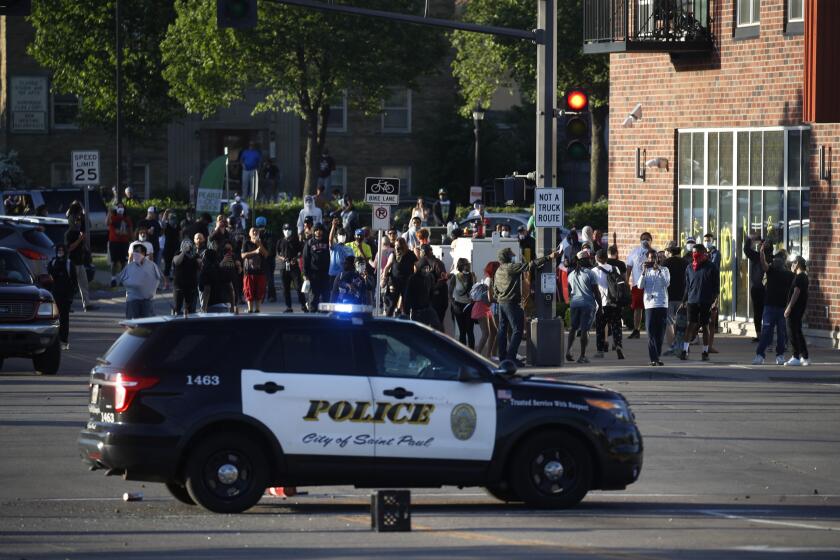The Real First Primary Gets No Respect From Democrats
Iowa and New Hampshire may be where the candidates are wooing voters, but neither is the location of the nation’s first Democratic presidential primary.
But with no convention delegates at stake -- making it what’s known as a political beauty contest -- and only four of the nine major Democratic candidates on the ballot, the District of Columbia election Tuesday has emerged as the Rodney Dangerfield of primaries.
Still, the election could prove meaningful to Howard Dean in his efforts to appeal to black voters. Dean will share the ballot with the three long shots among the nine major candidates -- Carol Moseley Braun, Dennis J. Kucinich and the Rev. Al Sharpton -- as well as seven lesser-known hopefuls.
The five other major Democratic candidates kept their names off the District of Columbia ballot, citing a national Democratic Party rule that recognizes the Jan. 27 New Hampshire primary as the first official one.
The candidate who has the most at stake in Tuesday’s vote, political analysts say, is Dean. A first-place finish in the predominantly African American city could help the former Vermont governor in South Carolina’s Feb. 3 primary, where the black vote is a significant factor.
“If Dean wins, he can claim it as evidence of his appeal to black voters,” even if subsequent analysis shows that most of his votes came from white neighborhoods, said John J. Pitney, a professor of government at Claremont McKenna College.
Donna Brazile, Al Gore’s presidential campaign manager in 2000, said the primary would give the winner “bragging rights, perhaps not now in New Hampshire but elsewhere along the Democratic trail.” But other experts dismiss the primary as a beauty contest with pimples.
“There’s a reason the top-tier candidates have treated the D.C. primary like mad cow disease,” said Washington political analyst Stuart Rothenberg. Most of the candidates were devoting their time and money to pursuing votes in Iowa and in New Hampshire, where delegates to the nominating convention will be chosen soon.
While party members in the District of Columbia will indicate their favorite candidates in Tuesday’s vote, the convention delegates will be chosen at party caucuses: Feb. 10 for Republicans and Feb. 14 for Democrats.
Washington’s City Council last year moved its primary from May to January to call attention to its long-standing gripe -- symbolized by the “Taxation Without Representation” emblazoned on license plates -- about its lack of voting members in Congress. “This is a chance for the district to thumb its nose at the electoral system that has scorned D.C.’s pleas for representation,” said Michael Munger, chairman of the political science department at Duke University.
Although Dean is on the District of Columbia ballot, he chose to stay in New Hampshire on Friday rather than fly to Washington for a debate featuring Moseley Braun, Kucinich and Sharpton. Dean isn’t scheduled to visit Washington before the vote Tuesday.
Sharpton has campaigned hard in Washington in the final days leading up to the primary, including airing radio ads assailing other candidates for refusing to campaign in Washington “for fear of offending Iowa and New Hampshire voters.”
Most of the candidates who aren’t on Tuesday’s ballot say they plan to work hard to secure District of Columbia delegates at the Feb. 14 caucuses.
“The [Democratic National Committee] sets the rules that nonbinding primaries can’t be held before New Hampshire, and we decided to live by those rules,” said Adam Kovacevich, spokesman for Sen. Joe Lieberman (D-Conn.). He said Lieberman had supported District of Columbia voting rights, “but the way you get the nomination is by winning delegates.”
More to Read
Get the L.A. Times Politics newsletter
Deeply reported insights into legislation, politics and policy from Sacramento, Washington and beyond. In your inbox three times per week.
You may occasionally receive promotional content from the Los Angeles Times.











